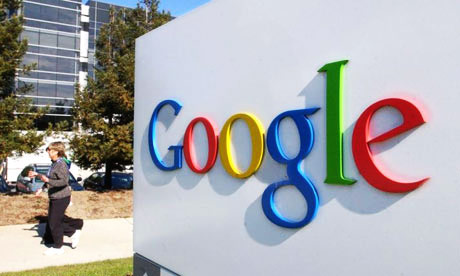You Read It Here First: Google’s ‘Ambient Background’ Spy Tech <p>‘Internet of things’ also a surveillance tool for authorities
Paul Joseph WatsonInfowars.com
Friday, March 23, 2012
Six years ago we warned readers that Google was planning to use the ambient background noise of a person’s environment to spy on their activities in order to direct targeted advertising at them through technological devices. That has now come to fruition with the search engine giant filing a petition for “Advertising based on environmental conditions.”

“As that title implies, it’s not just background sounds that could be used to determine what adverts you seen on your mobile phone. The patent also describes using ‘temperature, humidity, light and air composition’ to produced targeted adverts,”
reports the Daily Mail.
In other words, Google is going to spy on your private conversations, music preferences, TV watching habits, your choice of radio station, and whatever else is happening in your immediate environment, in order to build a psychological profile of your entire life.
The current patent relates to smart phones, but any Inter-connected device could ultimately be used for the same purpose.
Indeed, back in 2006 when we first reported on the issue, Google was already finalizing plans to spy on an individual’s ambient background environment by means of the microphone embedded in their personal computer.
In an article entitled Government, Industry To Use Computer Microphones To Spy On 150 Million Americans, we reported how Google was “planning to use microphones in the computers of an estimated 150 million-plus Internet active Americans to spy on their lifestyle choices and build psychological profiles which will be used for surveillance and minority report style invasive advertising and data mining.”
Google’s efforts to spy on users via their cell phones is part of the wider move towards the ‘Internet of things’ where virtually every technological appliance will be connected to the web, opening a pandora’s box of surveillance opportunities.
Given that the private industry is already licking its lips at the commercial prospects for this technology, don’t be naive to think that the state isn’t too far behind.
CIA Director David Petraeus recently lauded this development as “transformational” because it would open up a world of new opportunities for “clandestine tradecraft,” or in other words, make it easier for intelligence agencies and governments to spy on you via your dishwasher.
Petraeus said the emergence of so-called ‘smart’ devices would “change our notions of secrecy,” allowing authorities to track individuals via their household appliances.
“Once upon a time, spies had to place a bug in your chandelier to hear your conversation. With the rise of the “smart home,” you’d be sending tagged, geolocated data that a spy agency can intercept in real time when you use the lighting app on your phone to adjust your living room’s ambiance,”
reports Wired.
“Items of interest will be located, identified, monitored, and remotely controlled through technologies such as radio-frequency identification, sensor networks, tiny embedded servers, and energy harvesters—all connected to the next-generation Internet using abundant, low cost, and high-power computing—the latter now going to cloud computing, in many areas greater and greater supercomputing, and, ultimately, heading to quantum computing,” Petraeus told attendees at a meeting for the CIA’s venture capital firm In-Q-Tel.

